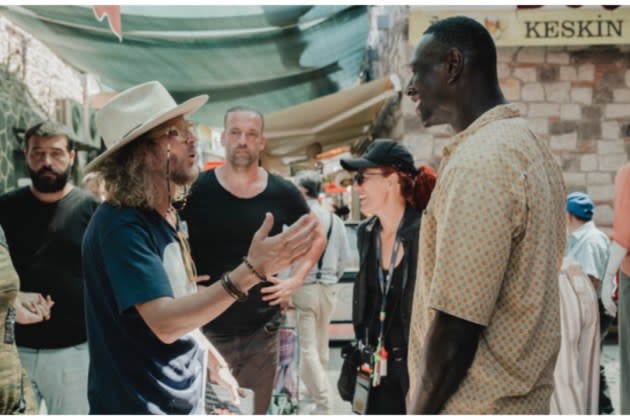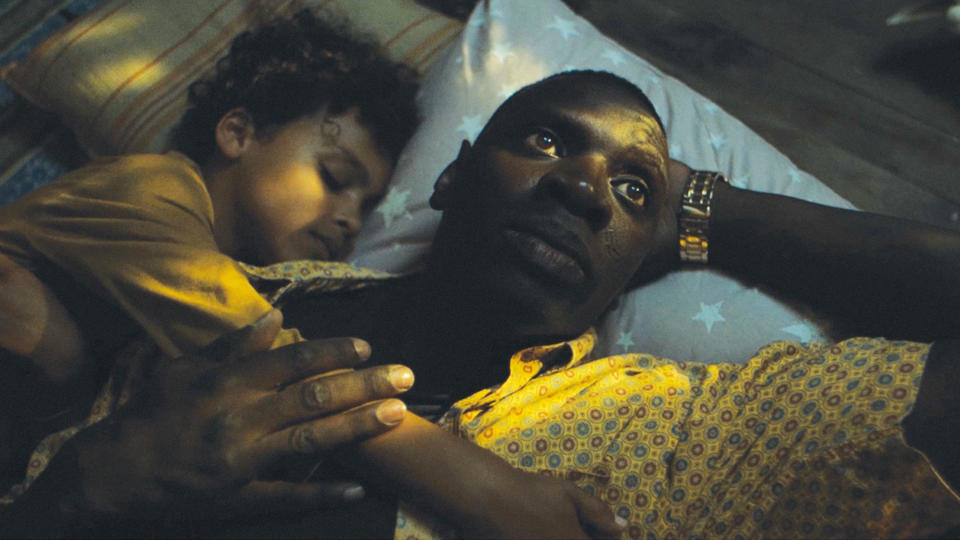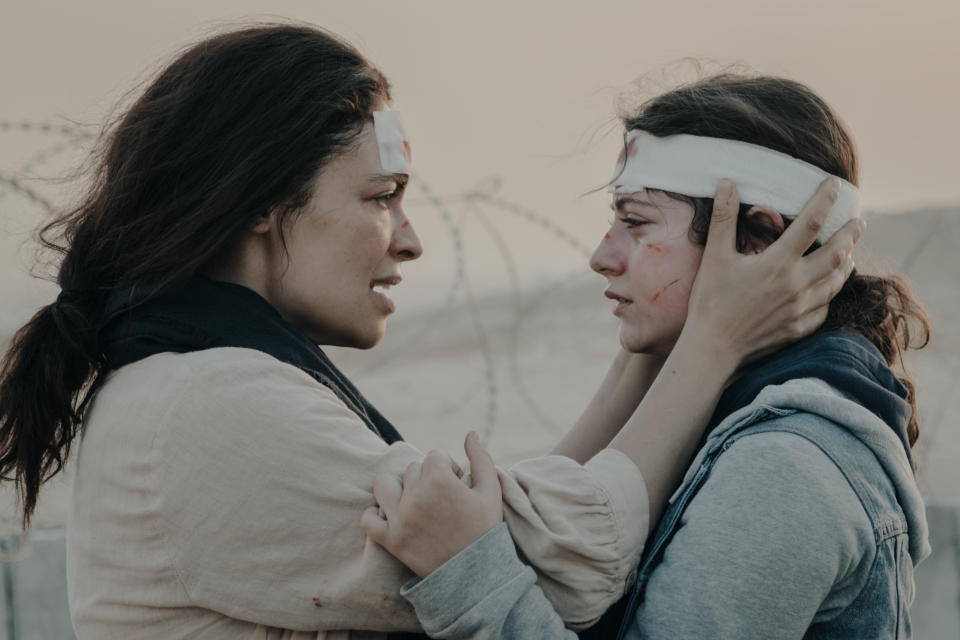Director-Activist Brandt Andersen On Making Omar Sy Starrer ‘The Strangers’ Case’ About Syrian Refugees: “It’s A By-Product Of All The Strong Emotions I Was Experiencing And All The Injustices That Were Taking Place”

EXCLUSIVE: Last month, when Brandt Andersen’s debut feature film The Strangers’ Case won the Amnesty International Film Award at Berlinale, it marked the recognition of a long and impassioned journey for the writer, director and long-time producer as he sought to marry film with his extensive activism background.
The drama, which world premiered as a Special Gala at Berlin, is an extended version of his Oscar-shortlisted short film Refugee and stars French actor Omar Sy and Lebanese-born Yasmine Al Massri. It’s a searing account of the refugee exodus sparked by the Arab Spring and ensuing Syrian Civil War. Andersen, whose producing credits include Everest, Lone Survivor and Golden Globe nominee The Flowers of War, writes and directs The Strangers’ Case and drew inspiration from people he encountered while working with humanitarian agencies in Turkey, Greece, Italy, Jordan and Syria.
More from Deadline
The film follows the chain reaction of events involving five different families in four different countries after tragedy strikes a Syrian family in Aleppo: a doctor (Al Massri) and her daughter, who come home following a chaotic shift at an Aleppo hospital; a soldier who witnesses heinous crimes towards men, women and children in the service of the Syrian regime; a smuggler in Turkey, (Sy) who tries desperately to make ends meet for his young son while also trying to save enough money to afford his own escape; a poet from a Turkish refugee camp who barters for space on an overcrowded boat with his young family; and a Greek coast guard captain who spends his days and nights rescuing sinking lifeboats full of migrants.
“I started going over to Turkey and Greece right during the Arab Spring when refugees were leaving Syria because they were being forced out and I felt like there were just ways I could help,” Andersen tells Deadline. “I’d been trained for search and rescue [Andersen was part of the Utah County Search and Rescue Team during college] and I had helped to bring in aid and doctors to Haiti after the earthquake and I thought that maybe there was something I can do here as these people are crossing the water. Just something in me needed to go there and see what I could do to help. It became a very important part of my life trying to figure out what I could do to help in these situations.”

Andersen spent a number of years going back and forth from the U.S. to Turkey and Greece working with humanitarian agencies and documenting conditions in refugee camps, which ultimately extended to Italy, Jordan and eventually Syria. During this time he began to learn Arabic – “It was helpful so I could communicate with people who were coming in and out of the water” – but it was only in 2017, when former President Donald Trump had put a controversial laptop ban on U.S.-bound flights from certain airports in the Middle East, when Andersen set to writing what would ultimately become The Strangers’ Case.
“I was just so perturbed by that laptop ban but I checked my laptop and went and bought a notepad and during that flight home, I wrote what ended up becoming the poet’s story in the film.”
When he returned back to the U.S., he finished the script in a month. “I didn’t really know what I was doing at all – I had never written a screenplay before but I was just kind of letting go of what I was feeling inside and putting these emotions in. It felt like I had to write to get it all out and I’ve never had that experience before. I was just trying to follow what was a feeling.”
His experience in Syria – where he spent three days – is heavily inspired in his script. He spent time at a neonatal hospital on the outskirts of Aleppo, crossing five checkpoints to get there. “It was an incredibly busy hospital with these devoted nurses and doctors who were working crazy shifts,” he says. “As I watched them, the joy with which they went about things and the passion of their stories just felt like a reminder of how important it would be that everything in the film was authentic – I wanted to make sure that every single element, from the White Helmets to the watches being worn, was fully authentic.”

Written initially as a feature film, Andersen struggled to get the project off the ground even with Sy already attached. After a suggestion from a friend, Andersen decided to pivot and make a short version of the film. Sy and Al Massri agreed to star in the short film as well and Refugee went on to be Oscar shortlisted in 2020. “It was an amazing way to learn how to direct,” says Andersen of the experience.
The Strangers’ Case was shot in Jordan, Turkey and Chicago and produced by Andersen, Ossama Bawardi, Ryan Busse and Charlie Endean. Mister Smith is repping international sales for the title with WME Independent handling North American rights. For Andersen, it was important to include real Syrian people as extras and noted that in some scenes, there were “several people” who had tried to cross the Aegean Sea to safety before.
This authenticity was paramount to Andersen: “I wanted you to feel like you were an active participant in this thing that would hold on to you the entire time without it feeling like you’re in a video game and because these are real stories, I wanted you to have these different perspectives, which is why it’s broken up into chapters.”
Each day of the shoot, Andersen says the production would do “daily devotionals”, which would involve a Syrian refugee telling their story to the cast and crew. “It would be the start of our day – actors and everyone would come and listen to these personal stories and often, we were tearing up by the end of the devotional and I would say, more often than not, it just set the tone for the production in that it was more than just showing up and making a movie and getting a paycheck.”
Ultimately, The Strangers’ Case is a film that Andersen says is a “by-product strong emotions that I was experiencing and all the injustices that were taking place, particularly with Syrians who were being exiled from their own country.”
“My activist work continues regardless of this film. It’s not like this is the end point and I can just go and watch baseball now – that’s not what it is. It’s just such a part of me and I can’t explain it as anything more than just a tremendous feeling of love and the need to be useful as often as I can be useful.”
Best of Deadline
Hollywood & Media Deaths In 2024: Photo Gallery & Obituaries
2024 Premiere Dates For New & Returning Series On Broadcast, Cable & Streaming
TV Cancellations Photo Gallery: Series Ending In 2024 & Beyond
Sign up for Deadline's Newsletter. For the latest news, follow us on Facebook, Twitter, and Instagram.


